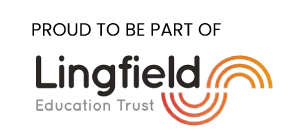Music Curriculum
Our music curriculum aims to provide all pupils with a high-quality music education which engages and inspires children to develop a life-long love of music. Through our approach to music, we also intend on developing children’s self-confidence, creativity and imagination. Music is everywhere – it reflects the culture and society we live in and the teaching of music enables children to better understand the world in which we live.
To support the provision of music within our school, we use an Ofsted approved scheme, Charanga. This scheme meets all statutory curricular requirements and is based on the philosophy of it being fun and engaging for all involved. For further information on our music curriculum, please see below.

Pupil Voice
“I love music because we learn new things every week!”
“The songs are so much fun, and I love using the glockenspiels”



